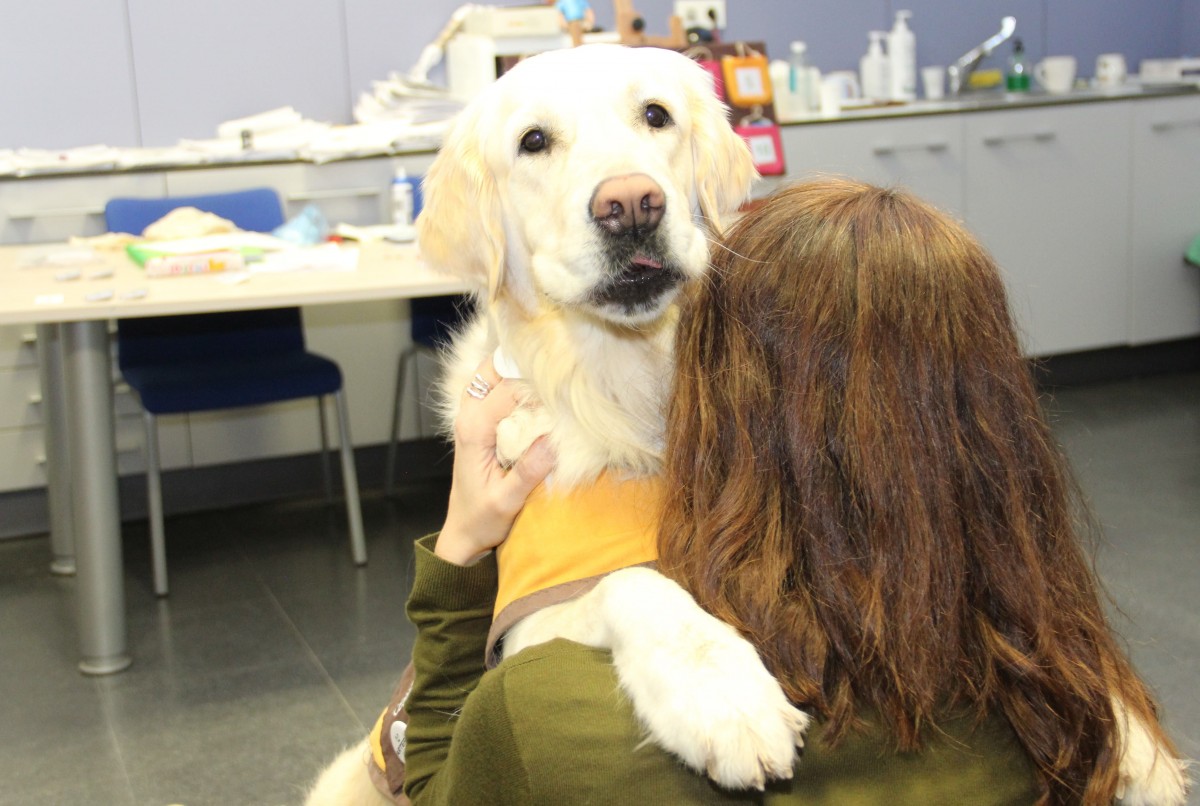







Animals improve self-esteem and confidence, reduce stress and anxiety, offer emotional support against depression, accelerate patients’ recovery and facilitate interaction in the social environment.

Currently, 34% of Spaniards have some mental health problem. This is according to the Annual Report of the National Health System (SNS), prepared by the Ministry of Health. In addition, among the most frequent mental disorders is anxiety, which affects women twice as often as men and has doubled in those under 25 years of age compared to 2016. This is followed by sleep disorders, depression and specific to learning.
The results show that health problems are one of the current “epidemics” that society faces, which must be prevented, faced and managed with strategies marked for each affected age group.
As multiple investigations have advanced, it is possible to find tangible evidence that living and interacting with animals brings various proven benefits to mental health, especially among children and adolescents. In this sense, since 2015, Purina, an expert brand in the care and feeding of pets, began research to collect evidence related to the impact generated by the human-animal bond, as well as studies on animal-assisted therapies.
Within the framework of World Mental Health Day, commemorated every October 10, Purina explains some benefits of having a pet and how they positively impact people’s mental health:
- Improves self-esteem and self-confidence: especially in children and adolescents who may feel sad, depressed or show some aggression as a result of insecurities that can be worked on thanks to therapies that include interaction with dogs.
- Reduces stress and anxiety: Pets play a vital role in reducing stress and anxiety by offering a calming and loving presence. Through physical interaction, such as petting a pet or receiving affection, our body releases hormones like oxytocin. This hormone, also known as the “love and well-being” hormone, promotes relaxation and a reduction in the level of cortisol in the blood, which is known as the stress hormone.
- It offers emotional support against depression: with great impact on older people who live alone, and/or those who suffer from episodes or disorders of depression. This section highlights the work that therapy dogs provide to these people, through company, raising their mood and promoting exercise. Dogs help that person “force themselves” to go out, acquire responsibilities, routines and “have to perform certain tasks” to take care of the animal. This therapy contributes to improving autonomy, physical activity and mood improvement.
- Accelerates patient recovery: the presence of therapy dogs contributes to the acceleration of patient recovery processes. Accompanied by intervention technicians and health professionals responsible for medical cases, the dogs help to overcome fear, improve anxiety, reduce heart rate, blood pressure and any other stressful situation linked to physical condition. or psychic of people.
- Facilitates interaction in a social environment: animals in general, and dogs in particular, are great social facilitators due to their ability to interact with other dogs and people. For people with difficulty relating to relationships, pets help us connect with other people and expand our social circle, which strengthens our sense of community.
The power of the human-animal bond
By 2030, Purina hopes to help one million people in vulnerable situations improve their health and well-being, including mental health. “Animal-assisted therapies offer different types of health benefits to people, from motivational to educational and cognitive. At Purina, our commitment to people’s health drives us to bring animal-assisted therapy to more and more health centers and to carry out clinical studies that support its impact,” declares Sònia Sáez, veterinarian and head of Communication at Purina Spain.
Currently, Purina collaborates with associations in which the human-animal bond (through animal-assisted interventions, activities or therapies) has supported children and adults in their physical and emotional needs, providing very positive results. Among its most recent projects in hospitals are:
- Purina Animal Therapy Alliance: Purina has recently launched this alliance open to hospitals and health centers that want to know more about animal-assisted therapies or contribute their experience to expand the impact of intervention dogs in the field of health. The purpose of the Purina Animal Therapy Alliance is to promote knowledge of the benefits of dog-assisted therapies, as well as contribute to the education and training of health personnel interested in implementing it.
- Research and studies in alliance with hospitals: since 2015, Purina has carried out various investigations with very important hospitals in the country, such as Hospital Clínic (Barcelona), Hospital Niño Jesús (Madrid), Hospital Sant Joan de Déu (Barcelona), Hospital Clínico San Carlos (Madrid), among others, who compile scientific evidence and sponsor studies that demonstrate with objective data the benefits of animal-assisted therapies in the people who need it most.
 Tag
Tag
 Related articles
Related articles
 More news
More news



